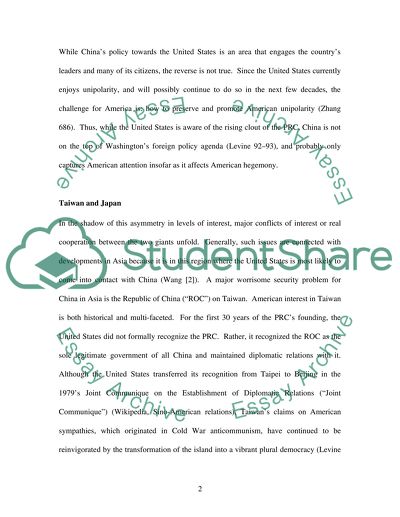Cite this document
(Sino-American Relations Essay Example | Topics and Well Written Essays - 2000 words, n.d.)
Sino-American Relations Essay Example | Topics and Well Written Essays - 2000 words. https://studentshare.org/politics/1534685-sino-american-relations
Sino-American Relations Essay Example | Topics and Well Written Essays - 2000 words. https://studentshare.org/politics/1534685-sino-american-relations
(Sino-American Relations Essay Example | Topics and Well Written Essays - 2000 Words)
Sino-American Relations Essay Example | Topics and Well Written Essays - 2000 Words. https://studentshare.org/politics/1534685-sino-american-relations.
Sino-American Relations Essay Example | Topics and Well Written Essays - 2000 Words. https://studentshare.org/politics/1534685-sino-american-relations.
“Sino-American Relations Essay Example | Topics and Well Written Essays - 2000 Words”. https://studentshare.org/politics/1534685-sino-american-relations.


